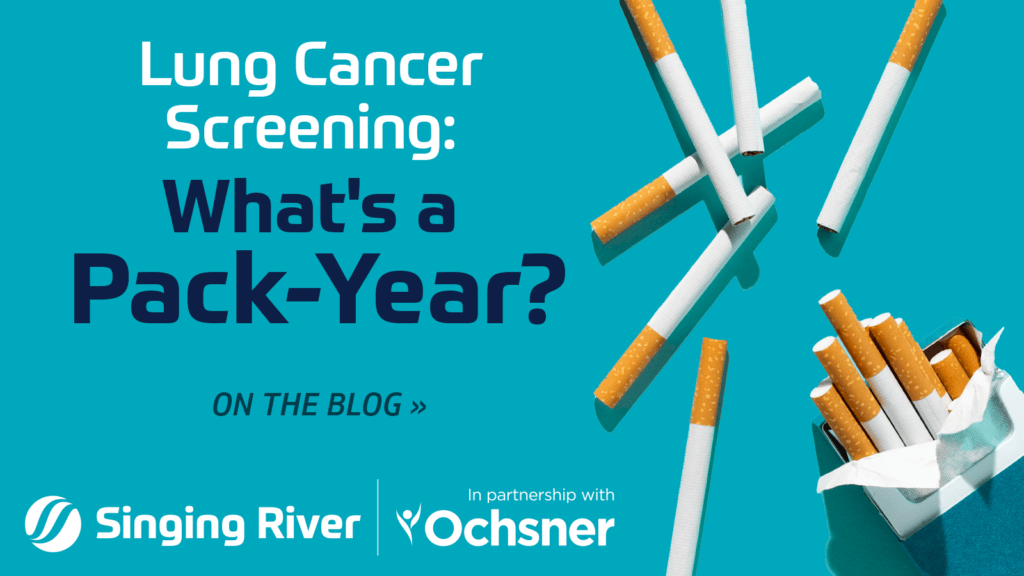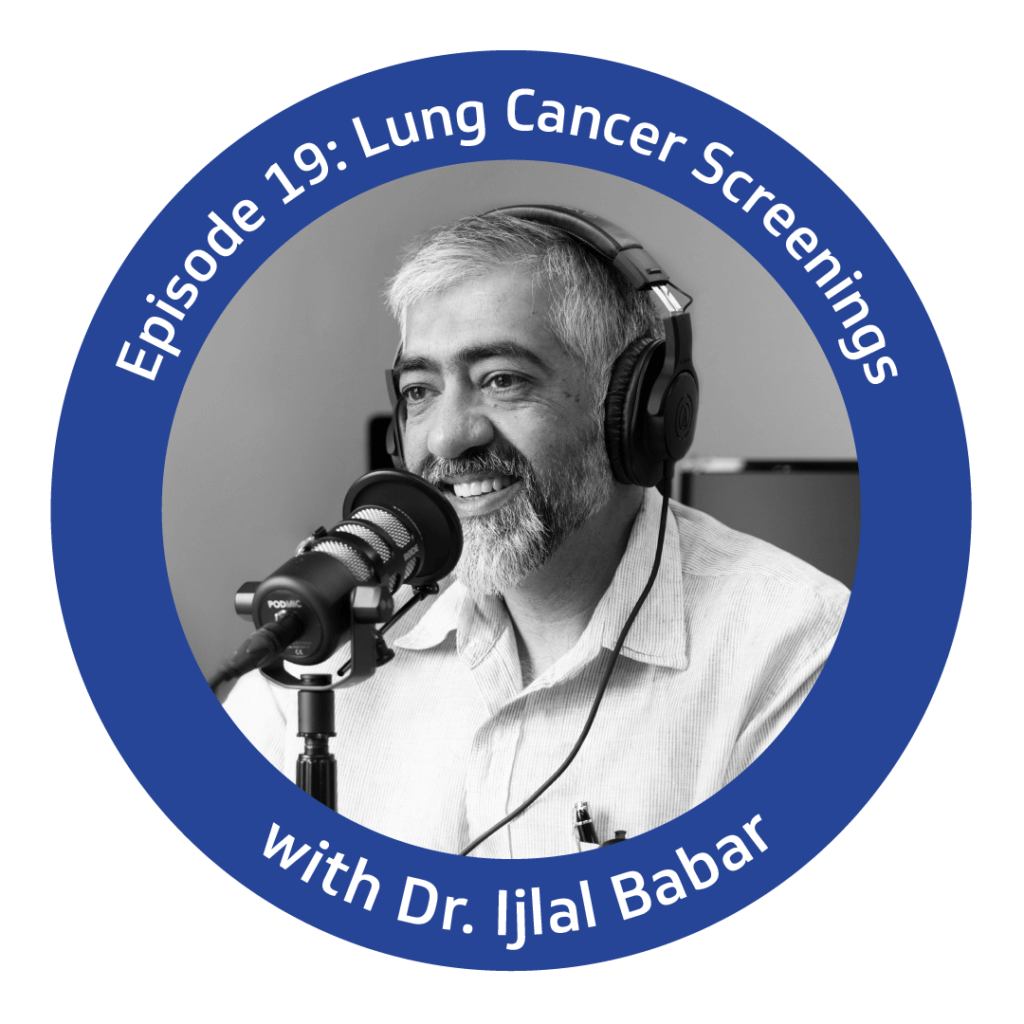Lung Cancer Screening: What’s a Pack-Year?

Unlike mammogram guidelines for breast cancer screening, which are somewhat easy to understand based on the age of an individual, lung cancer screening guidelines can be a bit more confusing.
Why Are Lung Cancer Screening Guidelines Confusing?
Because a main indicator that helps you understand if it is time for you to undergo lung cancer screening is a measurement called a “Pack-Year.”
So, What is a Pack-Year?
A Pack-Year essentially is a calculation that helps your Primary Care Provider or other medical professional determine how much you’ve smoked in your lifetime.
Pack Years = # of packs smoked each day x # of years smoked
For example, 2 packs per day for 10 years (2 x 10 =20) has 20 pack – years of smoking, whereas pack a day for 20 years (1 x 20 = 20) also has 20 pack- years of smoking.
When Should I Consider Lung Cancer Screening?
Your age, overall health, and pack-year history all play a role in whether a Low-Dose CT lung cancer screening procedure is a good idea for you and when you should begin these screenings. Generally, medical professionals suggest that you meet the following criteria to see the most benefit from Low Dose CT lung cancer screening:
You are 50 to 77 years old, in fairly good health
AND
Currently smoke or previously smoked, but quit within the past 15 years
AND
Have at least a 20 pack-year smoking history
What Else Should I Know About Lung Cancer Screening?
Lung cancer screening generally begins with a Low-Dose CT scan. In this test, an X-ray machine scans the body and uses low doses of radiation to make detailed pictures of the lungs.
Additionally, if you meet the above requirements for lung cancer screening, which indicate you are at risk of developing lung cancer, you should:
Receive counseling to quit smoking
AND
Talk to your Primary Care Provider about the possible benefits, limits, and harms of Low-Dose CT
AND
Be screened at a center that has experience in lung cancer screening and treatment
Singing River is home to the Mississippi Gulf Coast’s first accredited lung screening center and is accredited by the American College of Radiology for lung cancer screening. The high definition/Low-Dose CT scanner used at Singing River’s accredited lung screening center provides high-definition 3D images for your doctor and low radiation for you, so you can feel comfortable knowing you are getting quality images with minimal impact.
Why Should I Worry About Lung Cancer Screening?
Lung cancer is the leading cause of cancer death among both men and women worldwide. Nearly 160,000 Americans die of lung cancer each year. Based on findings of the National Lung Screening Trial, we know that Low-Dose CT lung cancer screening can save the lives of people at high risk for developing cancer.
Talk with your Primary Care Provider today about lung cancer screening, especially if you have calculated your pack-years and determined that you meet the criteria for high risk of developing lung cancer.
Content Inspired by Healthcare is Selfcare: The Podcast

There are many parts of our body that we must keep a check on as we age, and lung health is no exception. While up to 90% of lung cancer diagnoses come from smoking, there are other risk factors like family history and environmental exposure that can contribute. In this episode of Healthcare is Selfcare: The Podcast, Pulmonologist Ijlal Babar discusses what you can do to ensure you have healthy lungs.